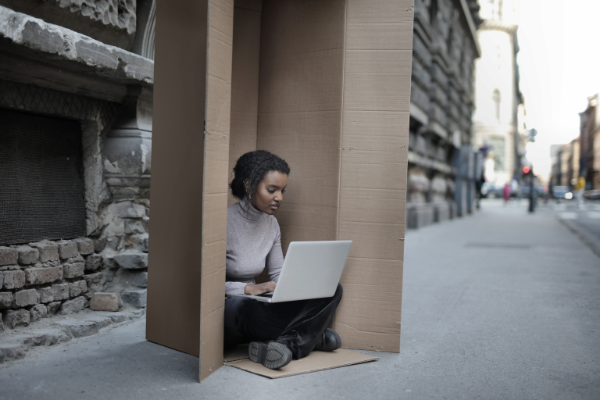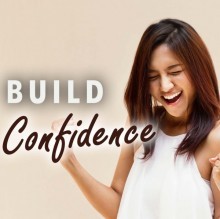
We all fall somewhere on a spectrum between introversion and extroversion. For people who're more extroverted, being social and outgoing is typically easier.
If you're more of an introvert, however, you might find yourself struggling to make new connections, preferring the familiar company of small groups you already know.
Perhaps you don't feel confident that you know how to approach people effectively, or maybe you worry that you're just not likable.
Regardless, being introverted can hold you back from a wide range of relationships - from networking in your career to finding new romantic prospects. So what can you do to socialize more effectively?
We'll look at where a lack of sociability comes from, and explore how it tends to manifest. From there, we'll move on to help you get past these limitations.
We'll offer five helpful techniques that will make you feel more confident and at ease when socializing, and we'll show you how to use them effectively.
Why Am I An Unsociable Person?

Early life experiences often hold the answer. For example, perhaps you were the middle child, whose older and younger siblings were given more attention. Or maybe you were embarrassed or bullied at school when you tried to speak out and make friends.
Before we look at techniques for battling introversion, let's explore two of the most common causes in more depth - personality type, and anxiety. Understanding the cause of your introversion will help you overcome it if you so choose.
Introverted Personality

Alternatively, your family may be introverts who pass on certain traits to you and model them in your home.
It's important to realize that if you do have introverted traits, this may not mean you're unsociable as such, Often, it simply means that you feel more at ease with small groups of people and that you don't feel relaxed until you get to know someone.
In other words, you're not hostile or misanthropic - you're just cautious.
Fear And Anxiety

This can be true even if you would actually love to speak up in large groups or be the life of the party. Again, there are multiple root causes for such anxiety, ranging from your particular brain chemistry to lessons you learned when social situations went badly.
In the case of brain chemistry, certain medications and therapy techniques can go a long way toward helping you manage that anxiety - we'll discuss one such therapy technique below.
Meanwhile, if you've just learned that social situations are dangerous, it can take time to unlearn those behaviors.
For example, if you've been betrayed by loved ones in the past, you may be extremely hesitant to let new people in your life. Similarly, if someone in an abusive dynamic has damaged your self-esteem, you might lack the confidence to talk to others.
At the end of this article, we'll look at one of the most promising techniques for changing how you think of such social situations.
How To Be Sociable With Others
At this point, you have a better sense of where introversion and lack of social comfort might come from. You understand that a complex mix of family background and life experience creates barriers to social connection.
Now, let's look at solutions. Without overhauling your personality, you can still use certain techniques to become more social. Here are four effective strategies you can start trying today.
Be The One To Start A Conversation For Once

So, what can you do to help yourself be the one to make an approach for once? The best trick here is to have an icebreaker or conversation starter up your sleeve. These are questions or observations that almost anyone can respond to with ease.
What does a good icebreaker look like? A heartfelt compliment can work, such as "I love that coat!" or "That's an amazing tie."
If you're worried about seeming like you're coming onto the person, try passing on an interesting piece of news instead (e.g., "Did you hear about ____?").
Another icebreaking remark involves passing comment on something around you - the weather, an unusual event, or something funny. And if you're feeling a little bolder, try starting with a joke.
Be A Good Listener

In particular, try to cultivate what psychologists refer to active listening.
This involves displaying cues that show you're engaged and interested.
One of the best tricks here is to reflect back on what you've heard, to demonstrate your attention, and also check for misunderstandings. For example, you might start such a reflection with "So, if I'm hearing you right..."
Body language also plays a major role in active listening. Keep your posture open, with your arms uncrossed, and nod or change your facial expression to encourage the person to keep speaking.
When asking further questions, aim for open questions rather than closed questions. Closed questions can be answered with "yes" or "no", while open questions require an elaboration.
Build Confidence And Give Compliments Freely

Giving out sincere and appropriate compliments throughout your conversation can make a big difference. Of course, you don't need to pepper every sentence with praise!
However, a simple "That's really insightful" or "I'd love to have that job" show the person that you think they're interesting.
They will often relax in response, letting their guard down and further warming to you. Plus, they'll be encouraged to see the best in you as well.
In addition, remember the other person may well be nervous about meeting new people too. They may be worried you don't like them and looking for reasons to walk away.
This means building their confidence is good for both of you. That's another why showing interest and appreciation can quickly foster a connection.
Make Plans To Meet And Get Involved With Friends Or Family

Don't just end the conversation wishing them well for the future - try to get another meeting in the diary.
Think of something worth inviting them to attend, or even just suggest having a cup of coffee sometime.
If you want to make the offer less intense (or want to make sure it's clear you don't have romantic intentions, for example), invite them to something involving family or friends. This type of event also reduces pressure on you, as there will be other people to carry some of the social load.
If you don't know what to suggest at the time, don't panic. Simply make sure you get the person's phone number or email address and contact them later with a fun idea for hanging out in the future.
Self-Hypnosis For Building Your Social Confidence
The above techniques will get you started on becoming more social and overcoming your insecurities.

Alternatively, maybe you're just impatient to feel more confident and are looking for a quicker fix. If any of this is true of you, hypnotherapy may be the perfect solution.
Our 'Build Your Social Confidence' program aims to offer just that. By getting under your conscious defenses and relaxing your subconscious mind, we can help you change your beliefs and feelings about socializing.
Self-hypnosis can remove your social anxiety, make you feel more confident, and altogether simplify the process of meeting new people. While it can't make you do anything you don't already want to do, it's highly effective at removing barriers standing between you and your best self.
So, whether you want to feel better interacting with others at work, in your romantic life, or at social events, try our confidence-boosting sessions today. Where you used to dread parties, conferences, or dates, you'll find yourself genuinely looking forward to getting to know new people.



